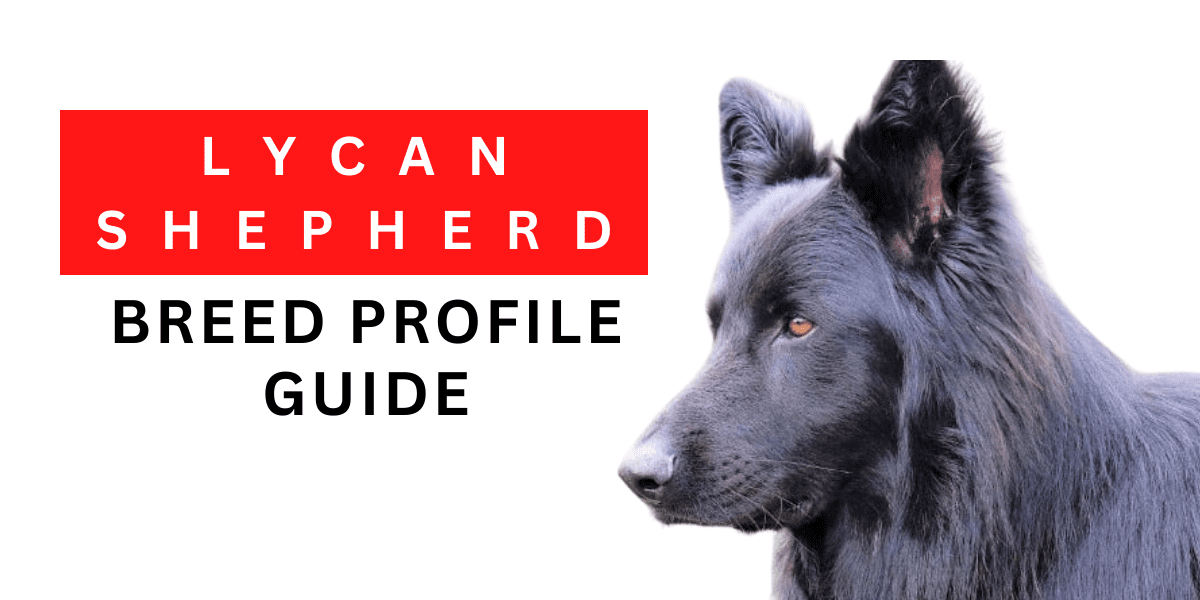Are Chow Chows smart? This question often arises when considering the intelligence of this popular breed. In this article, I will delve into the topic of Chow Chow intelligence and explore how it compares to other dog breeds. So, let’s uncover the secrets of Chow Chow IQ and unravel the truth behind their trainability and intelligence.
Are Chow Chows Smart?
- Chow Chows are known for their distinct characteristics and temperament.
- They may not rank highly in terms of obedience intelligence.
- Chow Chows’ trainability can be influenced by various factors such as breed characteristics and individual temperament.
- Proper training, socialization, and mental stimulation are crucial in developing the intelligence of Chow Chows.
- Comparing Chow Chows to other intelligent breeds can provide insights into their relative intelligence and trainability.
The Nature of Dog Intelligence
When it comes to dog intelligence, there are different types that contribute to a dog’s overall cognitive abilities and behavior. Understanding these different types can help us appreciate the unique qualities of our canine companions.
One type of intelligence is instinctive intelligence, which refers to the innate skills and behaviors that vary among different dog breeds. For example, some breeds have a natural talent for herding or retrieving, while others excel in activities like tracking or scent detection.
Another type of intelligence is adaptive intelligence. This involves a dog’s ability to adapt to its environment and solve problems. Dogs with high adaptive intelligence can quickly learn new tasks and find creative ways to overcome challenges they encounter.
The third type of intelligence is working or obedience intelligence. This measures a dog’s trainability and ability to understand and follow commands. Breeds with high working intelligence are quick to learn and can perform complex tasks, making them suitable for activities like obedience trials or service work.
All of these types of intelligence work together to shape a dog’s overall intelligence and behavior. Some breeds may excel in one type of intelligence while being average in others. It’s important to consider these different types when evaluating a dog’s intelligence and potential for certain tasks or activities.
Instinctive Intelligence
Instinctive intelligence is deeply rooted in a dog’s genetic makeup. Different breeds have been selectively bred for specific purposes over centuries, which has shaped their instinctive abilities. For example, Border Collies have a strong herding instinct, while Retrievers have a natural talent for fetching and retrieving objects. Understanding a breed’s instinctive intelligence can help owners better understand their dog’s predispositions and provide appropriate outlets for their natural instincts.
Adaptive Intelligence
Adaptive intelligence allows dogs to adjust to new situations, problem-solve, and learn from their experiences. Dogs with high adaptive intelligence can quickly adapt to changes in their environment and find solutions to challenges they encounter. This type of intelligence is particularly important for dogs in working roles, such as search and rescue dogs or therapy dogs, where they need to navigate unfamiliar environments and make independent decisions.
Working and Obedience Intelligence
Working and obedience intelligence, often measured through tasks and tests, assesses a dog’s trainability and ability to understand and follow commands. Dogs with high working intelligence can quickly learn new tasks and are responsive to training. This type of intelligence is essential for dogs in working roles, such as police dogs or assistance dogs, where they must perform specific tasks accurately and reliably.
Understanding the nature of dog intelligence helps us recognize and appreciate the unique qualities each breed possesses. While certain breeds may excel in specific types of intelligence, it’s important to remember that intelligence can vary within individual dogs, and each dog has its own strengths and abilities. By understanding and leveraging a dog’s intelligence, we can provide them with appropriate mental stimulation, training, and activities that cater to their individual needs.
Breed Rankings for Intelligence
In Professor Stanley Coren’s comprehensive book, “The Intelligence of Dogs,” he conducted a ranking of 130 dog breeds based on their working and obedience intelligence. The rankings were compiled through surveys of over 200 dog obedience judges in the United States and Canada. These rankings provide valuable insights into the intelligence levels of different dog breeds, shedding light on which breeds are considered the smartest.
According to Coren’s rankings, Chow Chows were categorized as the fourth least intelligent breed in terms of obedience intelligence. While Chow Chows possess unique qualities and characteristics, their obedience intelligence may require more effort and repetition compared to other breeds when it comes to understanding and obeying commands.

| Rank | Dog Breed |
|---|---|
| 1 | Border Collie |
| 2 | Poodle |
| 3 | German Shepherd |
| 4 | Golden Retriever |
| 5 | Doberman Pinscher |
| 6 | Shetland Sheepdog |
| 7 | Labrador Retriever |
| 8 | Papillon |
| 9 | Rottweiler |
| 10 | Australian Cattle Dog |
As seen in the table, these intelligent breeds excel in working and obedience tasks, demonstrating their high levels of intelligence. While Chow Chows may not rank as high in obedience intelligence, their unique characteristics and temperament make them a beloved breed for other purposes and traits.
Characteristics and Temperament of Chow Chows
Chow Chows have distinctive characteristics and temperament traits that may influence their trainability and intelligence. They are known for their independent nature, aloofness, and reserved behavior. Chow Chows can be stubborn and may require patient and consistent training methods. They are not known for their natural inclination to please their owners, which can make training more challenging. Understanding the specific characteristics and temperament of Chow Chows is important in tailoring effective training approaches for this breed.
Distinctive Characteristics
Chow Chows possess unique physical and behavioral traits that set them apart from other dog breeds. With their dense, thick coats, lion-like appearance, and blue/black tongues, Chow Chows have a majestic and distinct appearance. They are known for their excellent sense of smell and protective instinct, making them reliable watchdogs. However, their aloof and reserved demeanor may also make them wary of strangers and less inclined to socialize with unfamiliar individuals or animals.
Temperament and Behavior
The temperament of a Chow Chow is a key factor to consider when training and understanding their behavior. These dogs are known for their independent and strong-willed nature, which can sometimes lead to stubbornness. Unlike some breeds that are eager to please their owners, Chow Chows may require additional patience and persistence during training sessions.
Chow Chows have a dignified and calm demeanor, but they can also be protective and territorial, especially when it comes to their family and home. It is important to establish consistent boundaries and socialize them from an early age to ensure they behave appropriately in various situations.
Training Considerations
Due to their unique characteristics and independent nature, training a Chow Chow requires a tailored approach. Positive reinforcement techniques, such as rewards and praise, work best with this breed. Consistency, patience, and firmness are crucial to effectively train a Chow Chow.
Creating a structured training plan with clear expectations and boundaries can help them understand what is expected of them. It is important to start training early, as early socialization and exposure to various environments can help prevent any potential behavior issues later on.
While Chow Chows may not be as easily trainable as some other breeds, with the right approach and consistent effort, they can develop into well-behaved and obedient companions.
| Characteristic | Description |
|---|---|
| Appearance | Lion-like appearance, dense and thick double coat, blue/black tongue |
| Temperament | Independent, reserved, aloof, protective, territorial |
| Trainability | Requires patience, consistency, and positive reinforcement |
| Socialization | Early socialization is crucial to prevent behavior issues |
Factors Affecting Trainability
When it comes to dog trainability, several factors come into play, influencing a dog’s ability to learn and respond to commands. These factors include breed characteristics, genetic predisposition, early socialization, and individual temperament. Different dog breeds have varying levels of trainability, with some breeds naturally more inclined to follow instructions compared to others.
Chow Chows, for example, are known for their independent nature, which can make them less responsive to training. While this breed may not be as easily trainable as others, it is important to note that trainability can be developed and improved with the right approach.
Proper socialization plays a crucial role in shaping a dog’s behavior and trainability. Early exposure to various people, animals, and environments helps dogs develop social skills and adaptability. Positive reinforcement is another key factor in training success. Rewarding desired behaviors encourages dogs to repeat those actions, making training more effective and enjoyable. Consistency in training methods is also important, as it helps dogs understand what is expected of them and establishes clear boundaries.
Although Chow Chows may require more time and effort to train compared to some other breeds, it is important to remember that every dog is unique. With patience, understanding, and tailored training methods, Chow Chows can develop their trainability and intelligence, becoming well-behaved and obedient companions.

Enhancing Your Chow Chow’s Intelligence
To improve your Chow Chow’s intelligence and enhance their trainability, there are several strategies you can employ. By incorporating mental stimulation and consistent training techniques, you can help your Chow Chow reach their full intellectual potential.
1. Engage Their Mind with Interactive Toys
Providing your Chow Chow with interactive toys is a great way to stimulate their mental abilities. Look for toys that challenge their problem-solving skills and require them to think and strategize. Puzzle feeders, for example, can keep them mentally engaged while satisfying their natural instinct to forage for food.
2. Interactive Activities for Mental Stimulation
Incorporating interactive activities into your Chow Chow’s routine can effectively increase their intelligence. Engage them in games like hide-and-seek or teach them new tricks using positive reinforcement. These activities not only stimulate their mind but also strengthen the bond between you and your furry friend.
3. Consistent Training with Positive Reinforcement
Consistency is key when it comes to training your Chow Chow. Use positive reinforcement techniques such as rewards, treats, and praise to encourage desired behaviors. Breaking down training sessions into short, focused intervals will help your Chow Chow stay engaged and motivated.
4. Tailor Training Methods to Suit Their Needs
Understanding your Chow Chow’s specific needs and temperament is essential when designing a training program. Some dogs respond better to visual cues, while others may be more responsive to verbal commands. Tailor your training methods to suit their unique characteristics and learning style for optimal results.
By incorporating these strategies into your Chow Chow’s routine, you can enhance their intelligence and trainability. Remember to be patient, consistent, and always provide positive reinforcement. With time and effort, you’ll see significant improvements in your Chow Chow’s intelligence and overall behavior.
Comparison with Other Intelligent Dog Breeds
While Chow Chows may not rank highly in terms of obedience intelligence, it’s important to note that intelligence can vary within individual breeds. There are several other dog breeds renowned for their intelligence, such as Border Collies, Poodles, and German Shepherds, which have consistently ranked among the top intelligent breeds. Comparing Chow Chows to these intelligent breeds can provide insights into the relative intelligence and trainability of Chow Chows.
When it comes to intelligent dog breeds, Border Collies are often considered one of the smartest. They are known for their exceptional problem-solving abilities and are frequently used as working dogs in tasks requiring high levels of intelligence and trainability. Poodles, especially Standard Poodles, are also recognized for their intelligence and adaptability. They excel in activities such as obedience, agility, and learning complex tricks.
Another breed that stands out in terms of intelligence is the German Shepherd. Known for their versatility, German Shepherds are often used in various roles such as police and military work, search and rescue operations, and as service dogs. They are quick learners and possess excellent working and obedience intelligence.
Comparing Chow Chows to these intelligent dog breeds highlights the contrasts in trainability and problem-solving capabilities. While Chow Chows have their unique strengths and characteristics, their independent nature and reserved behavior may require different training approaches compared to the highly trainable breeds mentioned above.
Understanding the differing levels of intelligence and trainability among dog breeds can guide owners in selecting the right training methods and exercises to enhance their furry companions’ cognitive abilities. Remember that intelligence is not the only factor that defines a dog’s worth or lovability. Each breed, including Chow Chows, offers distinct qualities that make them special companions in their own right.
Conclusion
Chow Chows possess unique characteristics and temperament traits that can impact their trainability and intelligence. While they may not rank high in obedience intelligence, it’s important to consider the individual differences within the breed. With the right approach to training, socialization, and mental stimulation, Chow Chows can still become well-behaved and intelligent companions.
Understanding the specific needs and temperament of Chow Chows is crucial in developing their intelligence and fostering a strong bond with these beautiful dogs. Patience, consistency, and positive reinforcement are key elements in training Chow Chows effectively, and it is essential to tailor training methods to suit their independent nature.
Although Chow Chows may require more effort and repetition in training, they are capable of learning and exhibiting intelligence in their own unique ways. By providing the right environment, mental stimulation, and guidance, owners can unlock the full potential of their Chow Chows and watch them grow into intelligent and well-rounded companions.






